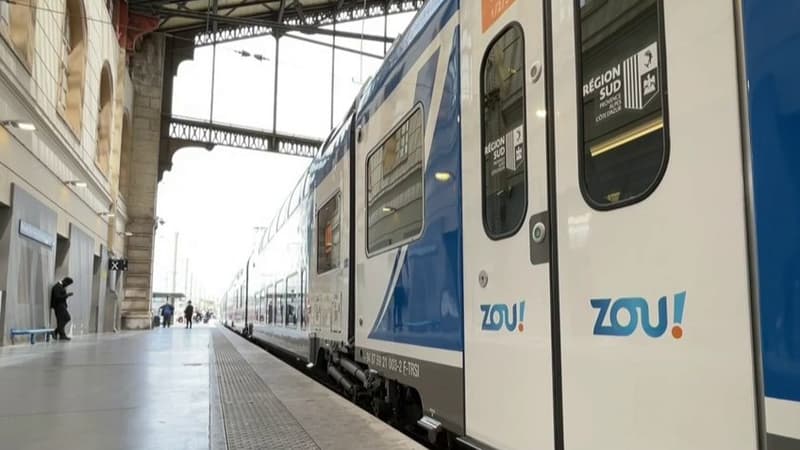It is a complicated launch for Transdev on the busy TER line between Marseille and Nice. Remember that since June 29, the operator who has just passed under a German pavilion, rolled his new trains in New Zou instead of SNCF travelers, after the opening of the competition on the railroad. It is the first in a line of this importance.
The promise made by Transdev, which convinced the region, is to double the number of daily trips in the line with a regularity rate of 97% (excluding infrastructure problems), particularly thanks to 16 new premium trains of Omneo, ordered in ALSTOM for 250 million euros and a new brand maintenance center near Nice (financed by the region). Therefore, fourteen daily trips of the round trip against seven with SNCF travelers, one train every hour and even 16 links per day on weekends.
Many delays and trains canceled during the summer
But things are not going as expected as expected and the account is not there. Obviously, there are late or canceled trains, Transdev is subject to the same whims of the network as SNCF travelers with an old and fragile road, especially during periods of heat wave. Therefore, he is not responsible for all delays, but there are also the breakdown of materials. And for many users, the operator not better than their predecessor.
These delays and cancellations have consequences for the quality of the service with sometimes crowded trains, exactly what Transdev wanted to avoid. “Transdev trains are really optional. This morning, in the arches, impossible to climb the train of 6:41. Forced to wait for the consequences. Pleasant for those who work …”, He denounces another member of this group. In addition, it is enough to look at Zou’s official communication channels to observe the volume of these delays and cancellations that multiplied in July and August.
The prices sometimes more expensive than TGV
In addition to delays, prices are also fixed. In some cases, taking a transdev ter Zou may be more expensive than entering a TGV. Example with a Marseille-Nice this Wednesday, August 20: with TER, the price is 40.80 euros, in TGV, the cheapest price offered by the SNCF is 36 euros, for the same course (comparison made in the train line).
But it is the operational incidents and their management that most care. In question, a fleet of new trains to “unlock” (inevitable youth defects), inexperienced young drivers and a heterogeneous fleet with older trains provided by other regions to compensate for the delivery of ALSTOM.
On August 3, for example, around 9 pm, a train suffered a collapse at the Arcs station. According to the incident report that we have given, an hour and a half later, the driver does not make any rescue request, in contradiction with the regulations. “No information is transmitted,” says the SNCF network report, the SNCF entity that manages the exploitation on the tracks.
The driver seems to want to fend for himself, but ends up requesting help around 2 am and stopped costs at 3 am, the train is still frozen in the arches, purely and simply blocking a main traffic route. Which is not trivial for other trains. SNCF Réseau is reported that another transdev driver will come to the site the next day at 6 am to “try to solve problems.” It actually arrives at 7:00 am, and then it is necessary to wait 10 hours so that the two trains that formed this train could separate. At 11:30 am, trains finally clear and release the way. In total, the incident will have lasted no less than 14 hours.
A dangerous breakdown
The management of the incident questions. According to an SNCF driver, “the regulations require that, since 15 minutes of problem solving, a request for help has been made, its driver took 5 hours.” Obviously, the inexperience of transdev drivers is in question (very few SNCF agents have agreed to join the new operator after the change of operator).
Another railway worker points “six months to be a driver” in Transdev. “You had to wait for him,” he added, pointing out “a festival” of incidents.
The other factor that explains the complexity of decomposition management is the heterogeneity of the rolling stock. It seems impossible to tow a new train broken down by a rented train. A scenario that does not seem to have been anticipated. However, these oars, if they are different, are from the same family and are manufactured by the same manufacturer. “What complicates any rescue operation,” explains a driver. unknown
Requested several times by BFM Business, Transdev has not yet returned our requests for details.
Source: BFM TV


